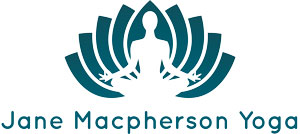FAQ
Yoga works at several levels. It can work on the physical body, alleviating stiffness in the neck, shoulders, and lower back and it can work on the mental level relieving stress and tensions in the body that can cause or accentuate back pain. Many medical practioners recommend Yoga for back pain sufferers and it can be particularly effective for sciatica and scoliosis.
No – the classes are for everyone – be they a beginner or have been practising for many years.
No you do not. Yoga is non-competitive, and you will be encouraged to observe your own body and practice the postures to your own ability level. However, you will find if you practice regularly, your fitness level will improve.
No. Yoga is non competitive – ie. every posture is practised to the best of that person’s ability. As the yoga practice progresses, students find that their flexibility improves greatly. Area that were very stiff become more flexible and weal areas become stronger.
If you have had any major health problems in the past, please do mention these to me as the postures can be modifed to help you and if you are on any medication, please also let me know.
Yoga can help reduce stress, improve concentration alleviate mood swings. It brings awareness and the ability to be ‘still’. Practising pranayama helps bring mental clarity and calm.
Yoga is a powerful discipline that can improve health and fitness. Yoga postures can increase flexibility, stability, stamina and strength and help bring proper alignment and posture. They also bring a feeling of well being to the entire body by stimulating the organs and improving circulation.
As the body works more efficiently, problems like headaches, back pain, stiff hips and digestive disorders can all be alleviated. Pranayama, the breathing techniques can lower the blood pressure, increase cardiovascular efficiency and aid relaxation.
If you have your own mat, please bring it with you. I do have some mats available. Please also bring a blanket as it is important you are warm when you are in the relaxation part of the class. Wear comfortable clothing such as loose or stretch trousers or shorts, a t-shirt and a sweatshirt if it is cool outside.
A regular practice can help improve many conditions including anxiety, depression, high blood pressure, migraines, pelvic floor problems, insomnia, respiratory ailments , digestive disorders and diabetes.
Yoga is a five thousand year old physical and philosophical system designed to improve a person on all levels. Yoga is a Sanskrit word (from the same Indo-European root as the English word ‘yoke’), which means ‘union’. Yoga is principally concerned with uniting the disparate elements of body, mind, intellect, emotions, nerves, soul and so on for a more fulfilled and more efficient living.
Yoga teaches the student to keep their body in tune with their mind and their soul. The body, mind, intellect and breath are all concentrated when performing an asana (posture).
I teach various styles of yoga. The basis of my teaching is Iyengar inspired – a form of yoga that focuses on alignment of the spine and builds flexibility and strength in the body. I also teach Vinyasa (a flowing style of yoga interlinking poses and using the breath as the anchor); Yoga Nidra ( a profound relaxation practice); Restorative yoga (yoga poses using props to ensure complete release of muscular and mental tension), Pranayama (yogic breathing techniques) and Meditation.
Everyone from children to those in their senior years. It is open to people of either sex and of all ages, races, religions and abilities.
